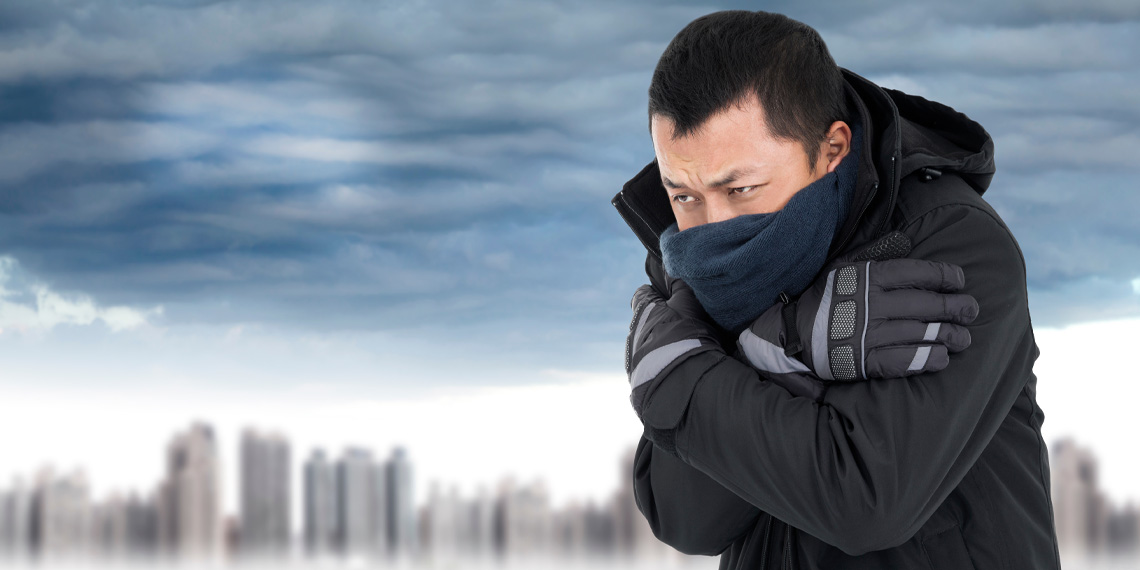Maybe the causality is backwards and depression causes heatwaves
Yeah cause it fucking sucks to be sweaty or numb all day, thanks
Exposure to extreme heat or cold conditions can impact autonomic function, leading to prolonged imbalances that can trigger chronic low-level inflammation, which may cause depression. Humidity may also contribute to this relationship by impairing the body’s ability to regulate temperature, which can worsen the effects of extreme heat on the mental health of susceptible individuals.
Moreover, high nighttime temperatures can interfere with the body’s circadian rhythms, causing excessive Hypothalamic-Pituitary-Adrenal (HPA) Axis activity and leading to further mental health issues.
Haven't read the paper itself, but I'm skeptical that these explanations are the sole reason for the causation. I feel they go too far into the "all mental health problems = inbalance of chemicals in the body" side of things. Maybe one reason why those living in areas with extreme temperature have higher rates of depression, is as simple a reason as them likely not going outside as much, particularly for leisure.
I think the circadian rhythm one is an overly complex way of saying it leads to sleep deprivation. I can totally see that leading to mood changes over time.
I agree, though I feel its a potentially unintuitive way of saying it in a pop-sci journal targeted at the general public. If you tell most people that high temperatures makes their body produce excessive "Hypothalamic-Pituitary-Adrenal," they won't have a great frame of reference for what you mean, and how that might cause them to feel symptoms of depression.
But you can tell anyone that high temperatures can keep them up at night, and cause them to feel miserable the next day, and I think they'll both fully understand what your saying and probably find it pretty applicable to their own experiences. I fully understand the need for scientific terms in professional contexts, but in an article like this good communication means getting things across in clear language that their audience understands.
though I feel its a potentially unintuitive way of saying it in a pop-sci journal targeted at the general public
I think you clicked through to the academic paper.
I don't think so in this instance it probably is saying that the high temperature leads to a mismatch between the 'local circadian time' of a part of the body and the 'master clock' in the brain. Mismatches have proven to exist and to cause chemical imbalance in our body for example eating windows and it's effect on our body in respect to blood sugars. I even wrote about that one a couple of months back on hexbear if it's still there. I could totally see that a mismatch can cause that and doing tests between people with a conditioned vs unconditioned room could be interesting to look at. Also circadian rhythm is still fairly new grounds I think the knowledge that 'local' circadian clocks exist is only about a decade old.
Also maybe the most phoned in coverage of a scientific article ever, but at least they link to the paper.
i mean yeah, i used to cry when i wasn't able to sleep during load shedding in summers.
Also, its insanely difficult to work out or even go outside during extreme weather. You get really tired when coming back from work or school or whatever.
I feel like everyone already knew this about the cold and everyone who lives in a hot climate knew it about the heat
Breaking news: It sucks to not be able to go outside, or worse to be sweating/freezing in your home
Not being able to get sleep because it's too hot -> too tired to do anything during the day and it's too hot anyway -> can't get good sleep because it's too hot and you didn't do anything during the day so you aren't tired
Without my A/C unit I would go insane in the summer.
When I was a kid our AC would go out for like 2 weeks every summer and I’d take wet wash cloths and put them in the freezer and just lay in bed at night wide awake sweating and hoping the cold towels will help enough to let me sleep
Without my A/C unit I would go insane in the summer.
I mean a lot of it is westoid shit tbh. If you lived in a hot country you would adapt fairly quickly. It's just that we're used to treats like AC
Oh probably. Temperatures have noticeably risen in recent summers, so it's a sudden change.
Title is misleading, as always with these studies; correlation causation. There's a thousand confounding factors, even on a specific age range within China.
Not sure about the extreme heat but winter = less sunlight = lower vitamin D = depression.
So the Bedouins in Arabia are depressed? So were the Inuit in North America? Or the millions living in South Asian or Southeast Asia? Not gonna lie this kinda sounds like big time BS.
Remindse of the time I heard a naturopath radio show talking about sleep. They touted a study showing higher suicide rates among teens who don't regularly get enough sleep.
They were like "wow really makes you think, sleep deprivation can be really dangerous." missing the totally obvious point that a suicidal teen might have trouble sleeping.
I almost called in but I don't care enough.




